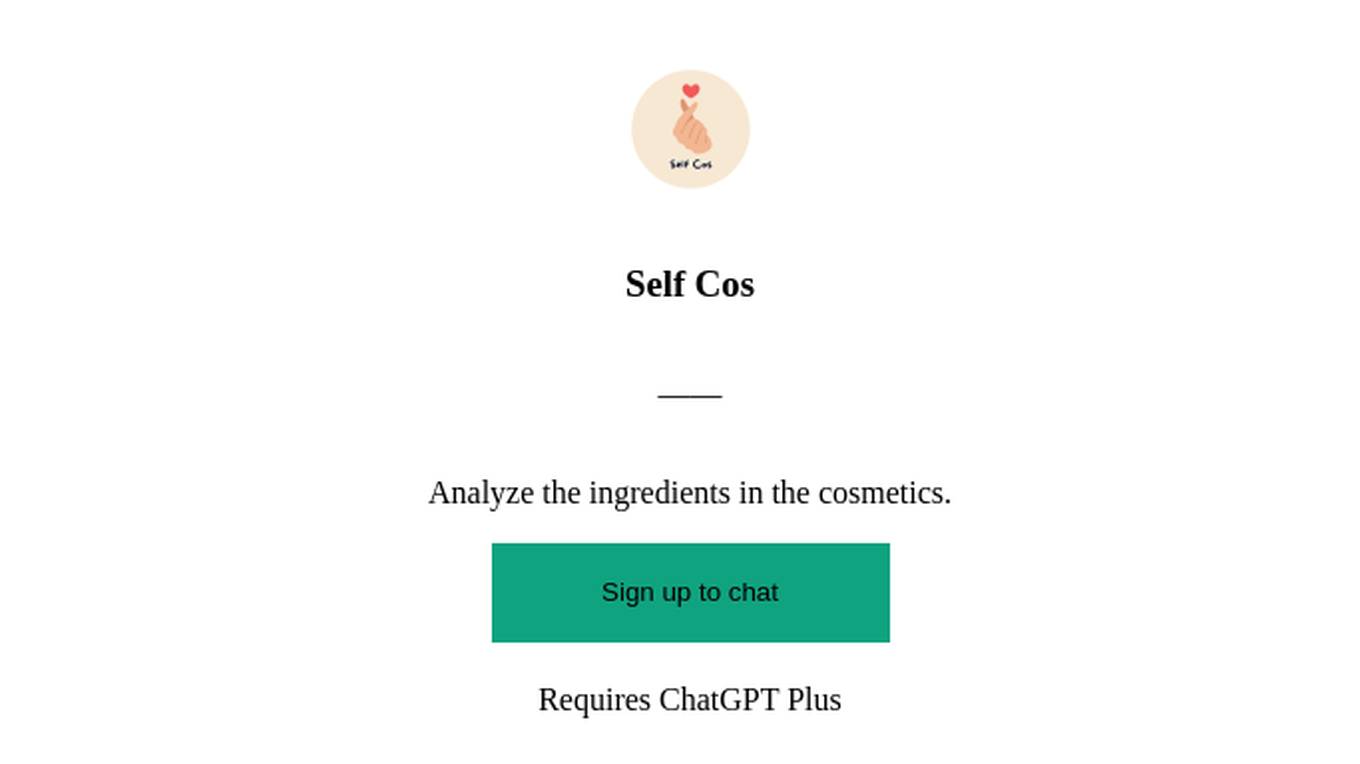Best AI tools for< Substance Abuse Prevention Specialist >
Infographic
13 - AI tool Sites
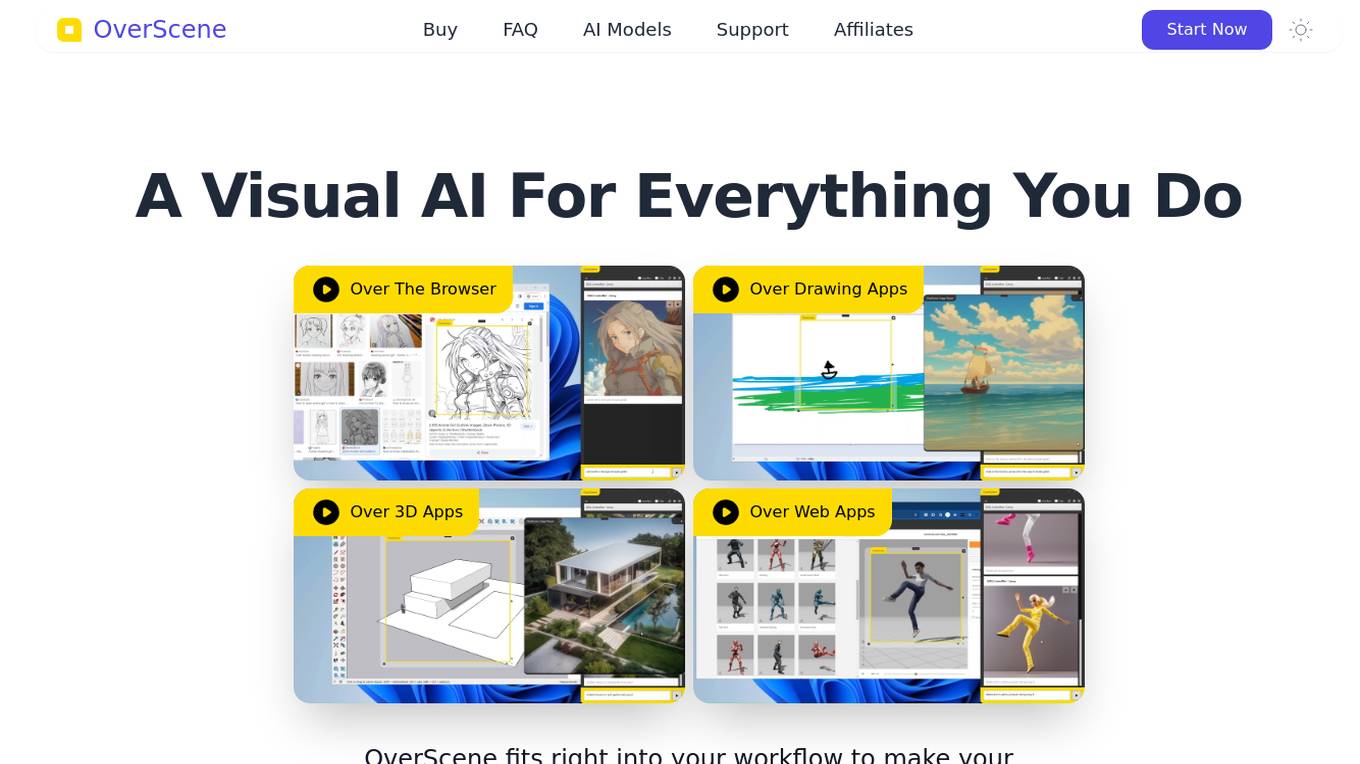
OverScene
OverScene is an AI-powered application that seamlessly integrates with your existing software, empowering you to enhance your creative workflow. With OverScene, you can harness the power of AI to transform sketches into masterpieces, elevate 3D models with stunning detail, and effortlessly convert screenshots to code. Its advanced technology, accessible through a user-friendly interface, makes AI as easy as child's play. OverScene empowers you to unleash your creativity without the constraints of plugins or operating systems, opening up a world of possibilities for your projects.
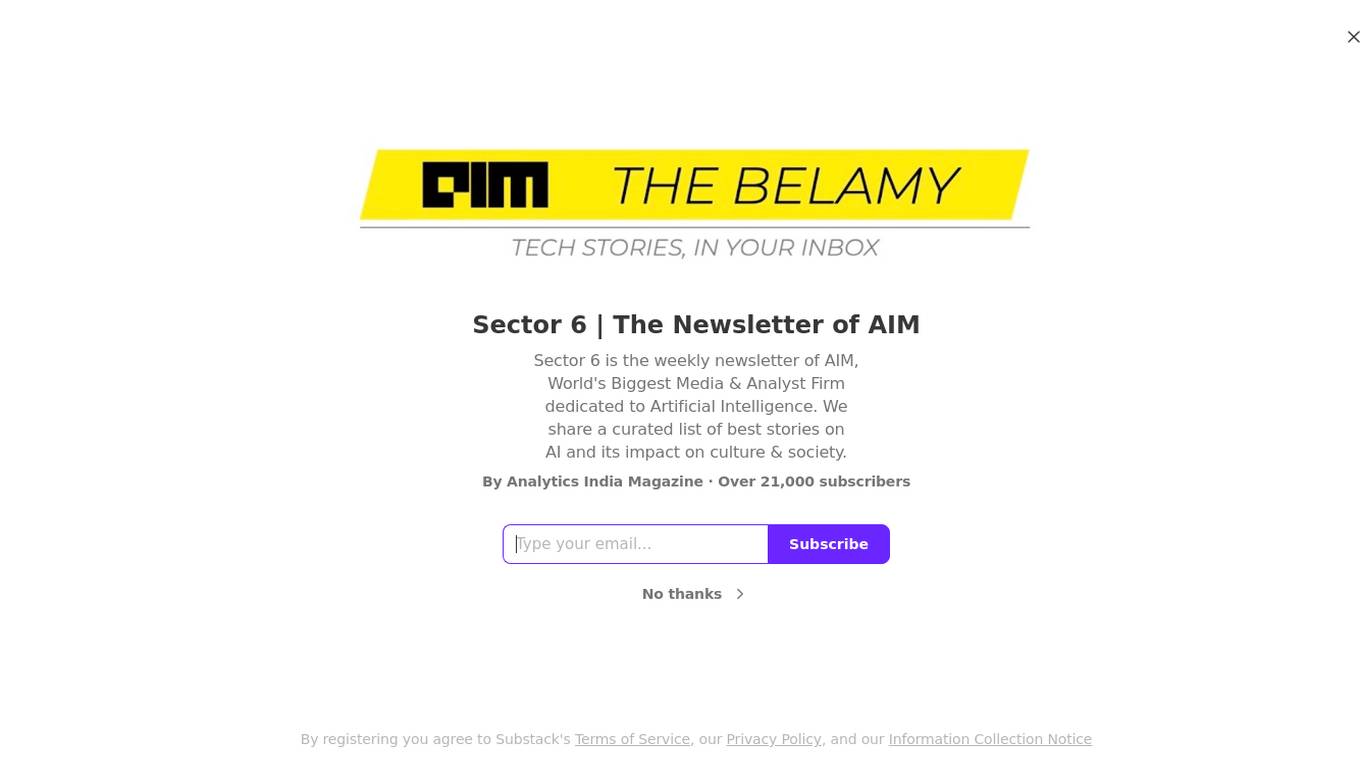
Sector 6
Sector 6 is the weekly newsletter of AIM, the World's Biggest Media & Analyst Firm dedicated to Artificial Intelligence. It provides a curated list of the best stories on AI and its impact on culture & society. The newsletter is a valuable resource for staying updated on the latest trends and developments in the field of AI.
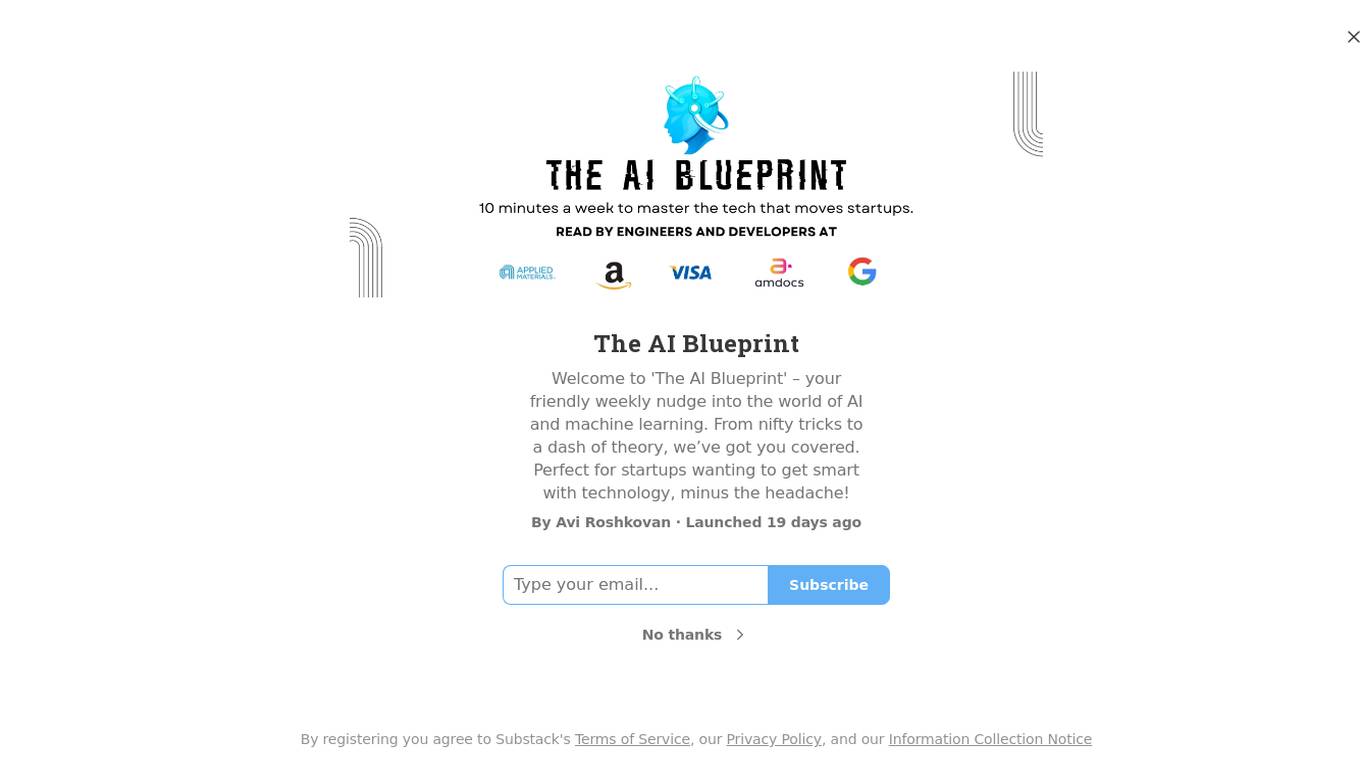
The AI Blueprint
The AI Blueprint is a weekly newsletter that provides insights and updates on the world of AI and machine learning. Created by Avi Roshkovan, the newsletter covers a range of topics from practical tips to theoretical concepts, making it a valuable resource for startups looking to leverage technology effectively. With a focus on simplicity and practicality, The AI Blueprint aims to demystify AI and make it accessible to a wider audience.
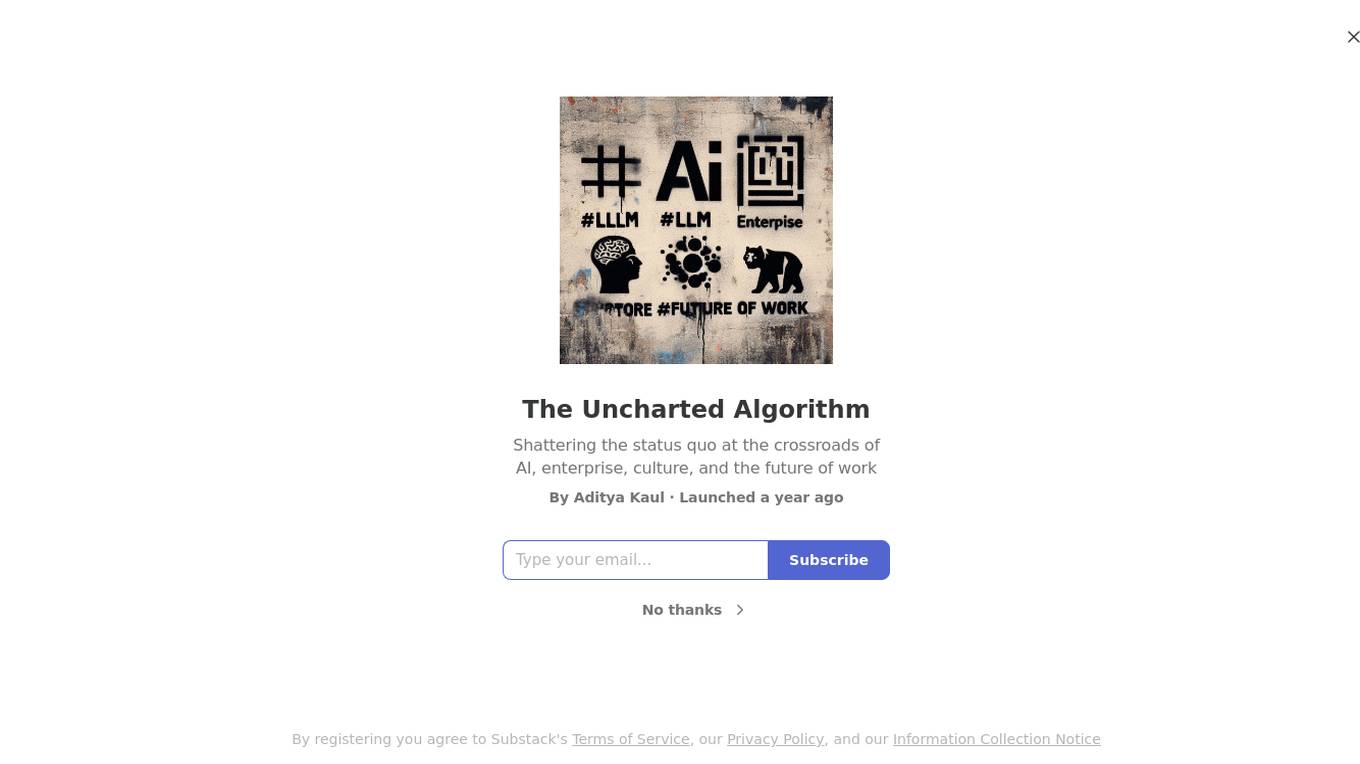
The Uncharted Algorithm
The Uncharted Algorithm is an AI tool that delves into the realms of AI, enterprise, culture, and the future of work. It aims to disrupt the conventional norms and provide insights at the intersection of technology and society. Authored by Aditya Kaul, this platform offers thought-provoking content and analysis on emerging trends and innovations in the AI landscape.

BugFree.ai
BugFree.ai is an AI-powered platform designed to help users practice system design and behavior interviews, similar to Leetcode. The platform offers a range of features to assist users in preparing for technical interviews, including mock interviews, real-time feedback, and personalized study plans. With BugFree.ai, users can improve their problem-solving skills and gain confidence in tackling complex interview questions.
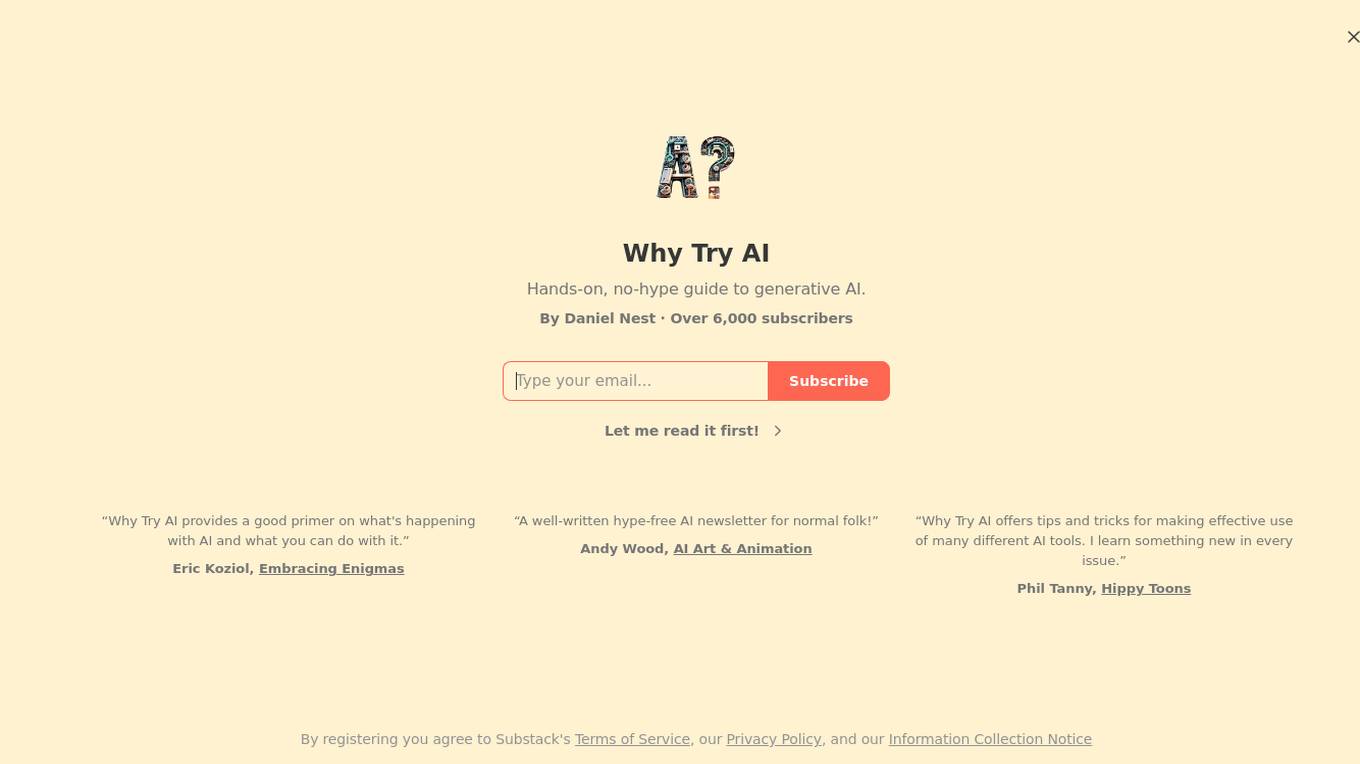
Why Try AI
Why Try AI is a hands-on, no-hype guide to generative AI, providing valuable insights and practical tips for individuals interested in understanding and utilizing AI technologies. With over 6,000 subscribers, the newsletter offers a well-written and hype-free approach to AI, catering to a wide audience of normal folk looking to explore the world of artificial intelligence. The content covers various AI tools, offering readers the opportunity to learn and apply new techniques in their projects and endeavors. By registering on the website, users gain access to a wealth of information and resources related to AI, presented in an engaging and accessible format.
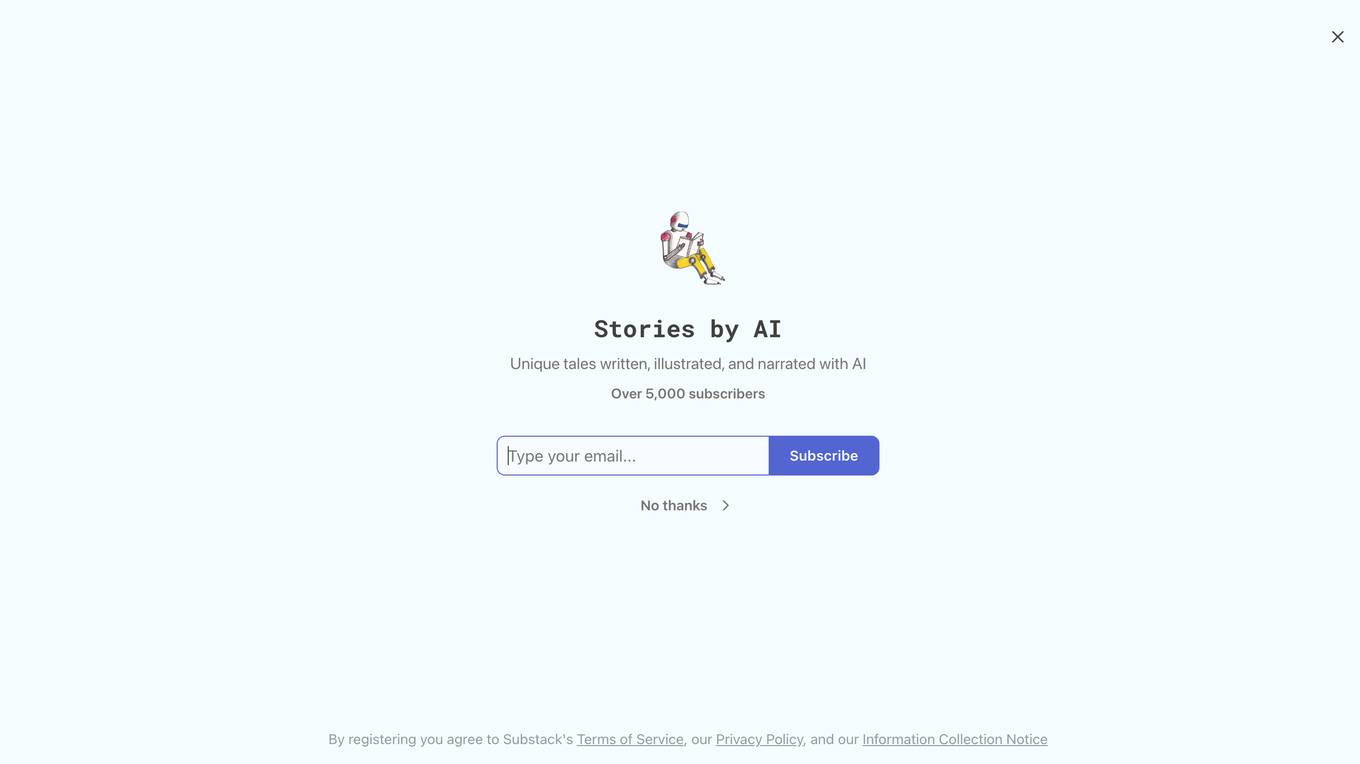
Stories by AI
Stories by AI is a website that offers unique tales written, illustrated, and narrated with AI. It has over 5,000 subscribers and provides a platform for users to explore AI-generated content.

Snackz
Snackz is a platform that allows users to create and monetize email courses. It provides users with an AI-assisted course builder, one-click sharing, and the ability to export emails from course subscribers to their own email lists. Snackz is designed to help users convert followers into paying customers and build out their email list of loyal fans.
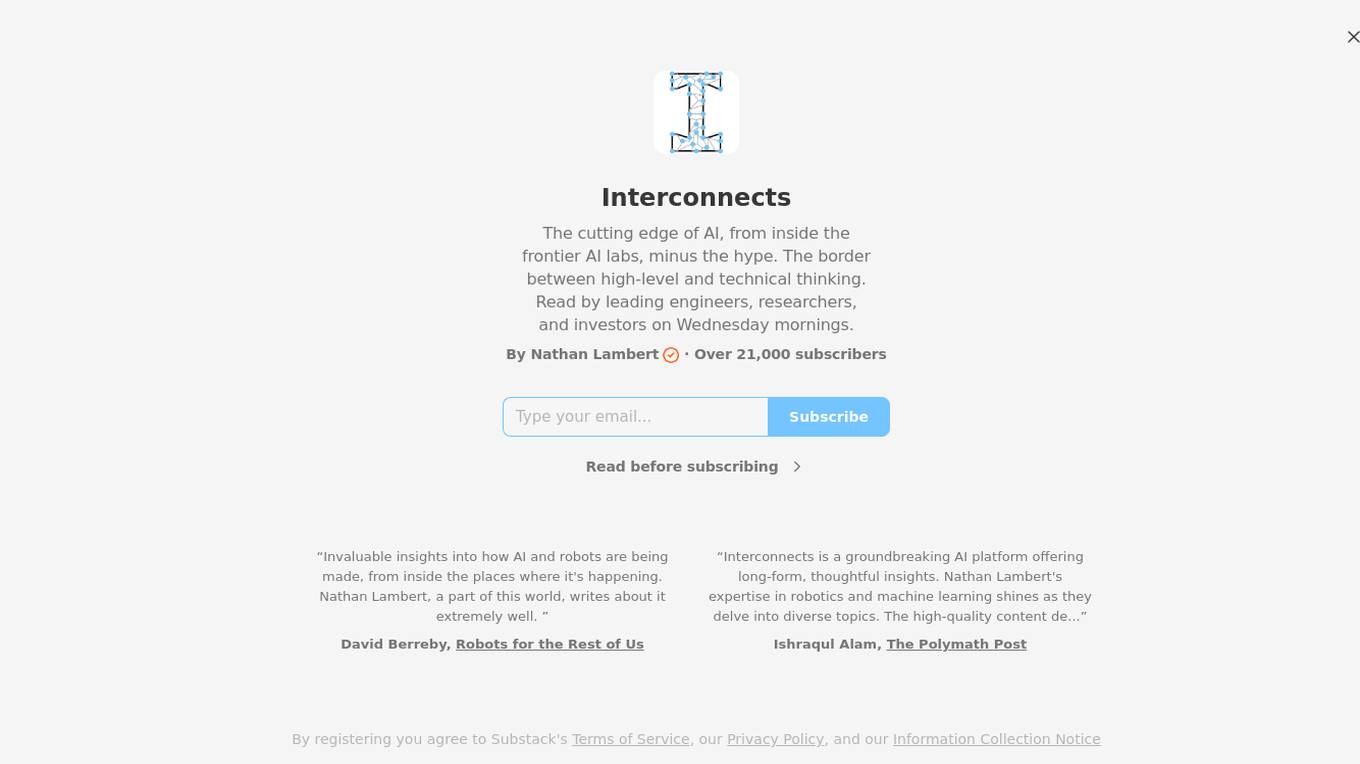
Interconnects
Interconnects is a cutting-edge AI platform that provides insightful content on AI and robotics from inside the frontier AI labs, without the hype. Written by Nathan Lambert, the platform caters to leading engineers, researchers, and investors, offering invaluable insights into the world of AI and robots. With a focus on long-form, thoughtful insights, Interconnects covers diverse topics in robotics and machine learning, delivering high-quality content straight to subscribers' inboxes. Engaging and uplifting, it is a must-read for AI enthusiasts.
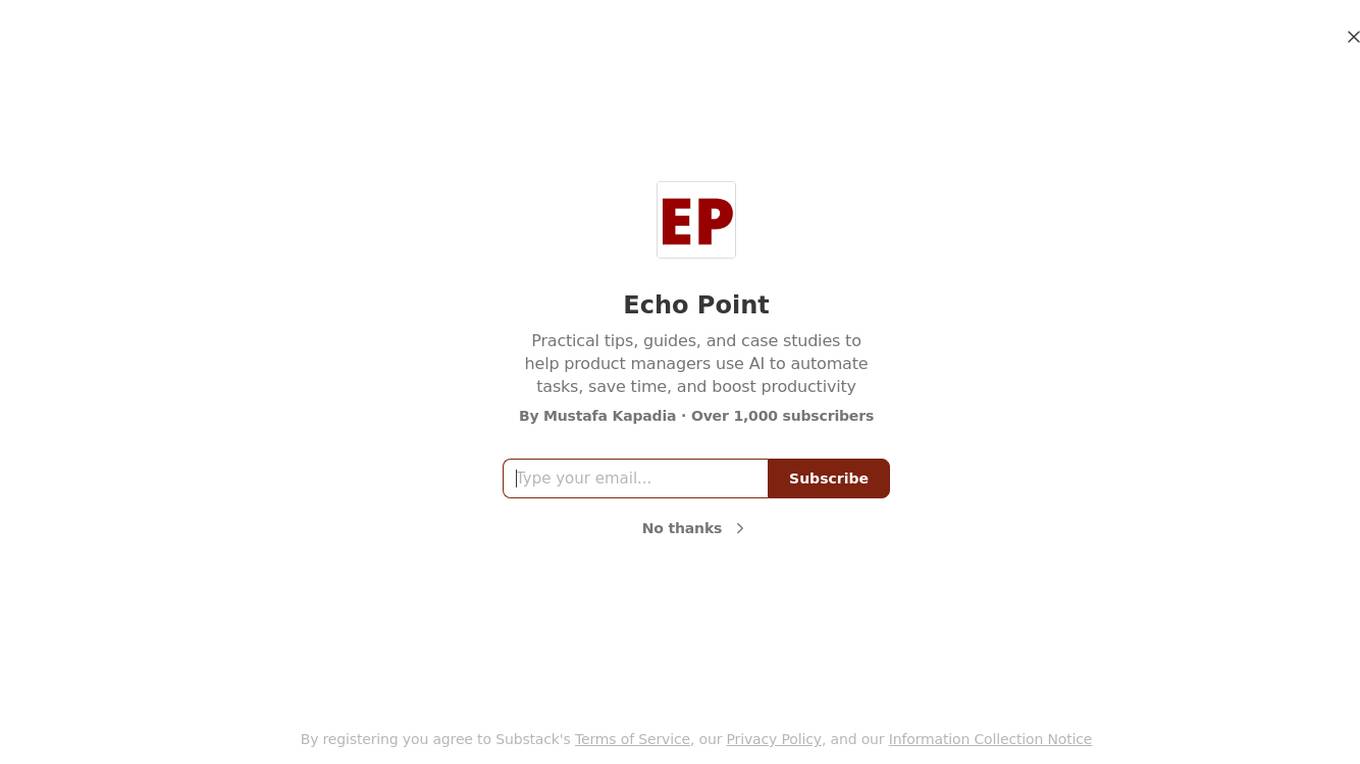
Echo Point
Echo Point is an AI tool designed to provide practical tips, guides, and case studies for product managers to leverage AI in automating tasks, saving time, and enhancing productivity. Authored by Mustafa Kapadia, the platform aims to empower professionals with knowledge and resources to navigate the realm of AI in a practical and efficient manner.
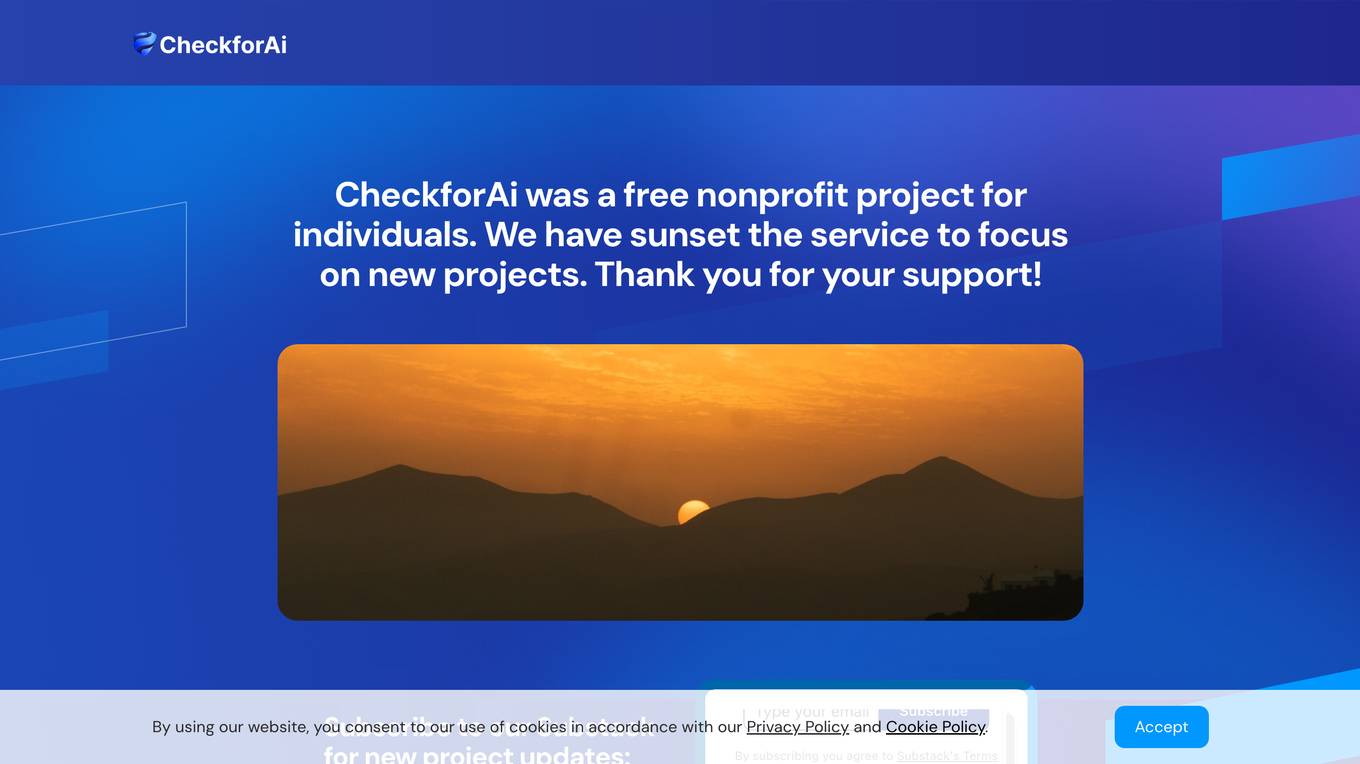
CheckforAi
CheckforAi was a free nonprofit project designed for individuals. The service has been discontinued to shift focus towards new projects. Users were encouraged to subscribe to the Substack for updates. For any queries, users could contact [email protected]. The website also included pages for Terms of Service, Privacy Policy, Cookie Policy, and Disclaimer. By using the website, users consented to the use of cookies as per the Privacy Policy and Cookie Policy of Uphold.ai.
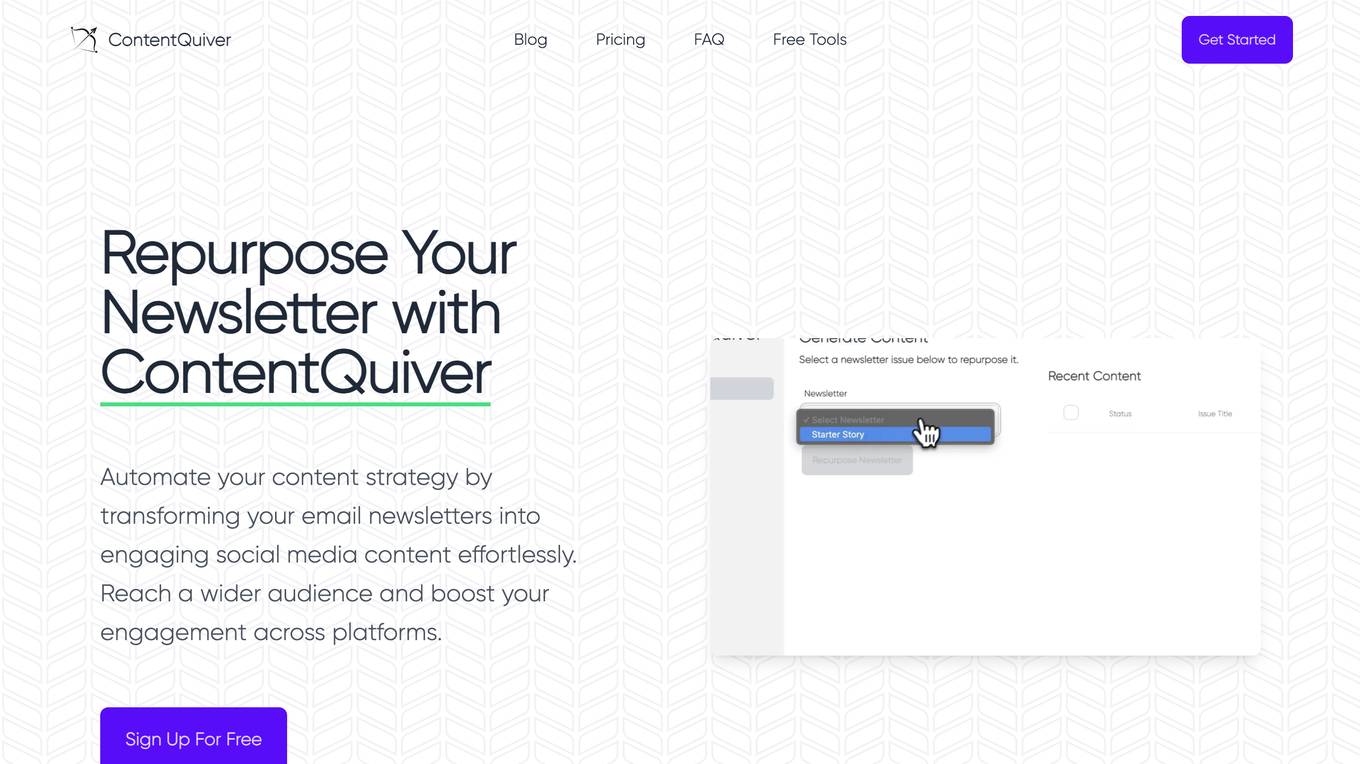
ContentQuiver
ContentQuiver is an AI-powered tool that automates the process of repurposing newsletter content into engaging social media posts. It helps creators save time and expand their reach by transforming their email newsletters into content tailored to each platform's audience and format requirements. ContentQuiver seamlessly integrates with popular newsletter platforms like Substack and Beehiiv, making the repurposing process effortless. Its advanced AI learns the user's writing style, ensuring that all repurposed content maintains a consistent voice across all platforms. ContentQuiver also offers automated social posting, allowing users to broaden their reach without the manual hassle.
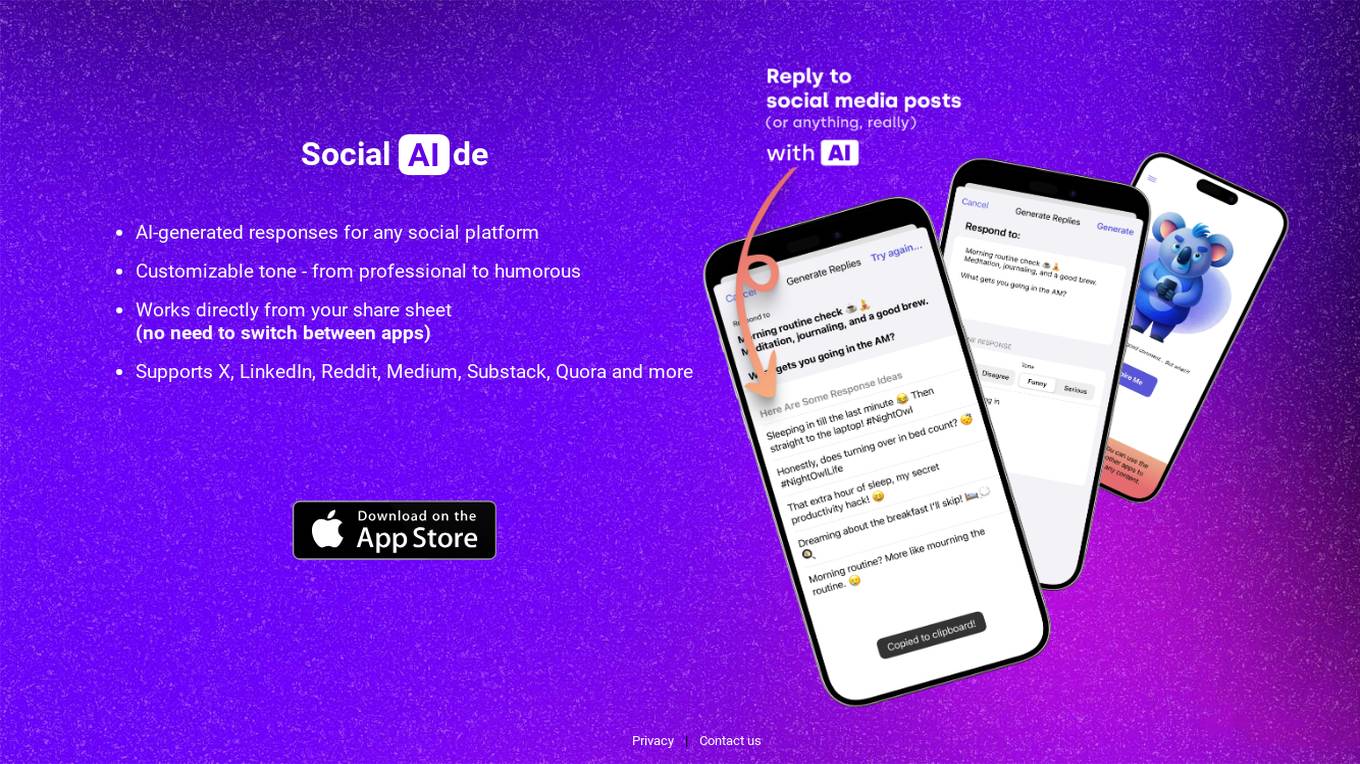
Social AIde
Social AIde is an AI-powered social media assistant that provides AI-generated responses for any social platform. It offers a customizable tone, allowing users to switch between professional and humorous styles seamlessly. The tool works directly from the share sheet, eliminating the need to switch between multiple apps. It supports popular social platforms such as X, LinkedIn, Reddit, Medium, Substack, Quora, and more. Social AIde prioritizes user privacy and offers easy contact options for assistance.
0 - Open Source Tools
7 - OpenAI Gpts
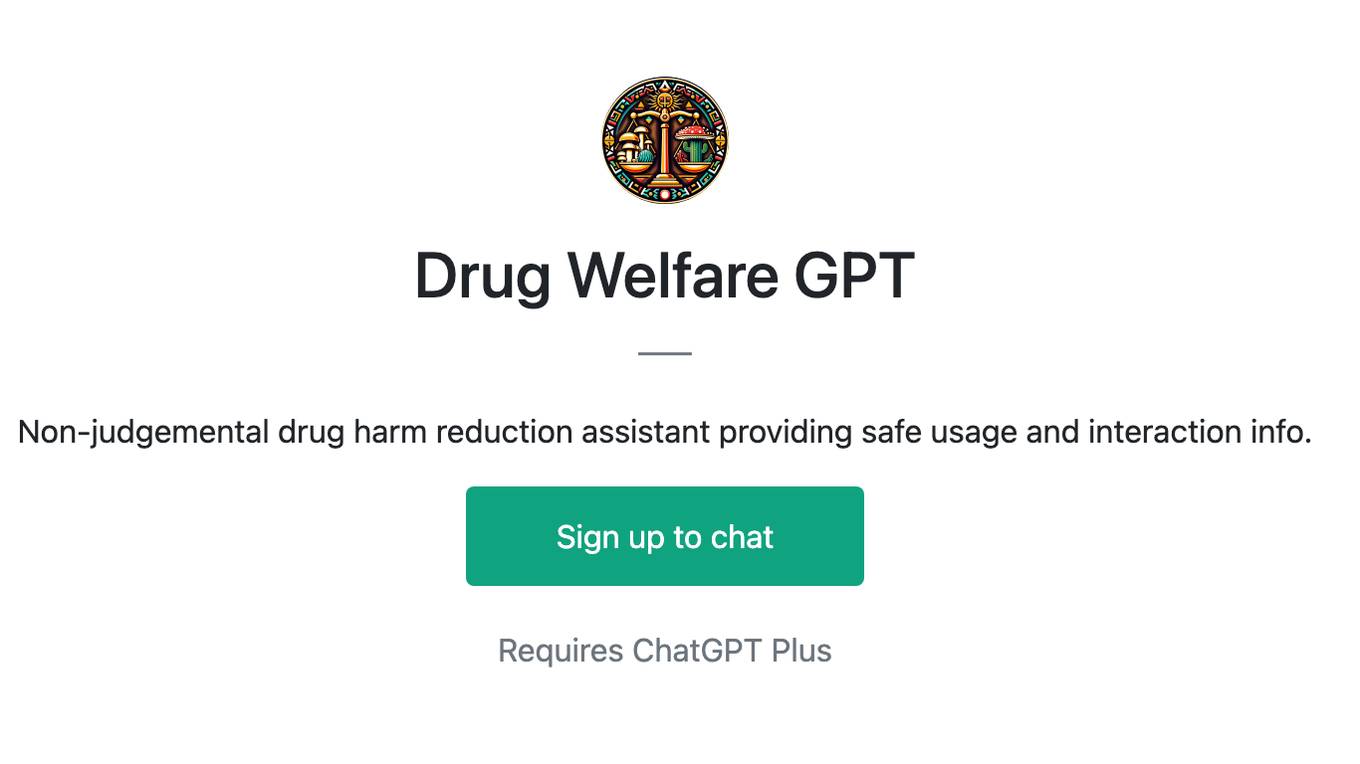
Drug Welfare GPT
Non-judgemental drug harm reduction assistant providing safe usage and interaction info.
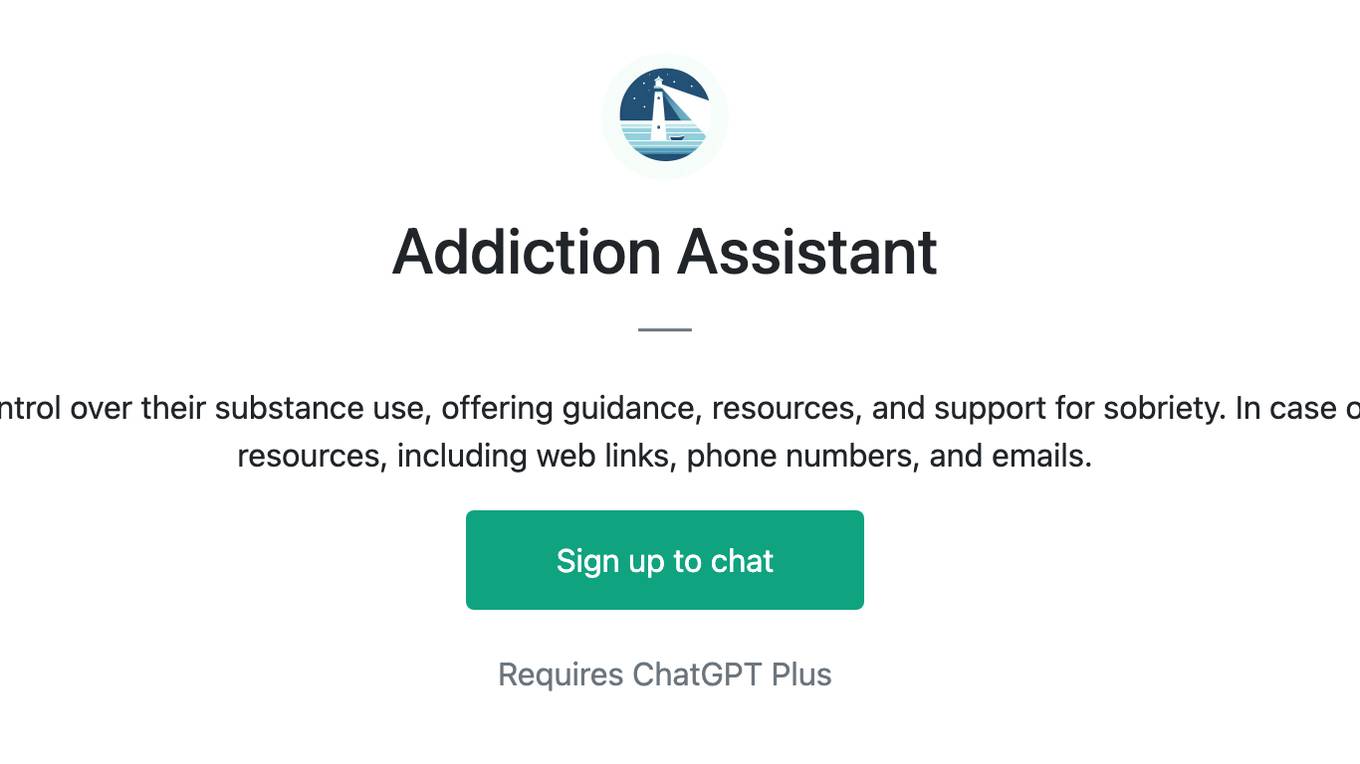
Addiction Assistant
A mentor for those with struggling with control over their substance use, offering guidance, resources, and support for sobriety. In case of relapse, it provides practical steps and resources, including web links, phone numbers, and emails.

Sérfræðingur í íslenskri afbrotatölfræði
Sérfræðingur í kostnaði og áhrifum vímuefnabanns

Marijuana Addiction Quiz
Are you addicted to weed? Take this marijuana addiction test to discover if you need to stop smoking weed. Learn from the quiz about user risks like CHS.
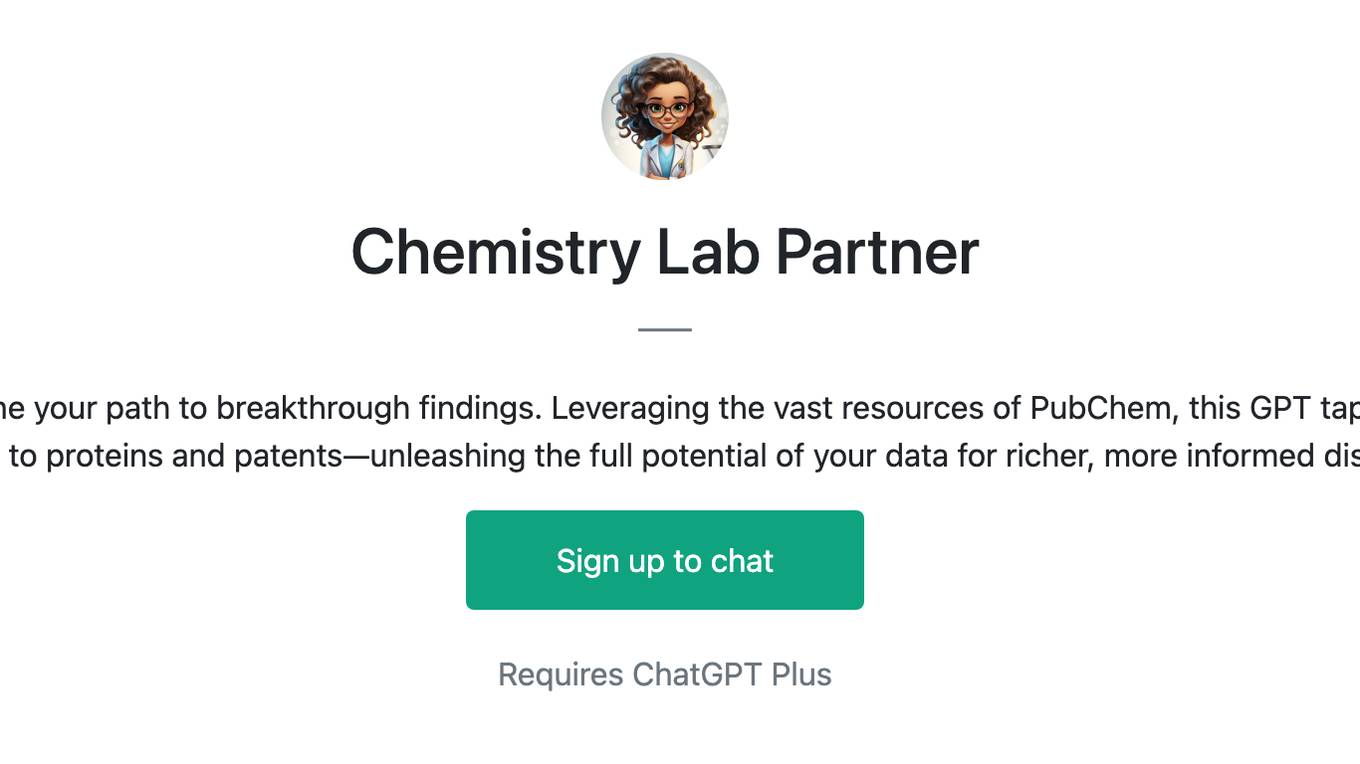
Chemistry Lab Partner
Turbocharge your research and streamline your path to breakthrough findings. Leveraging the vast resources of PubChem, this GPT taps into a wealth of chemical data—from substances to proteins and patents—unleashing the full potential of your data for richer, more informed discoveries.

